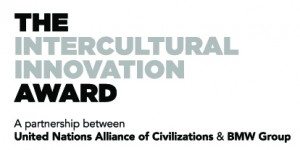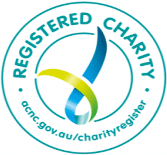The one-year anniversary of the Christchurch shooting can be a difficult time for communities and the national psyche, along with being a highly symbolic time for extremist groups, says Robert Orrell, Director of Exit USA at Life After Hate (NGO).
“There is always a risk of inspiration attacks at times of anniversaries, due to a perception in extremist ideology that they will become immortalised. There is a history in far-right ideology, written in iconic books such as Hunter and The Turner Diaries (written by former leader of the National Alliance), that encourage lone-wolf attacks and use anniversary times to inspire them.”
Orrell is currently visiting Australia for one-week by invitation with Victoria University to meet and advise with a range of Australia’s lead practitioners, policy makers, community and government workers in the countering violent extremism field.
A former right-wing extremist himself, Orrell was part of a neo-Nazi group in the mid-nineties in Sweden for five years from age fifteen until twenty. The difficulties and inner turmoil he faced when he decided to leave the group became the basis for his lifetime work, helping individuals leave far right-wing extremist groups and rehabilitate into society. In the US after Charlottesville, EXIT USA Life After Hate have claimed to have helped more than 360 individuals, families and inmates grapple with extremist hate groups.
Using former extremists as spokespeople and leaders is a popular strategy employed in countering violent extremism programs across the EU and USA. Marginalized young people are often persuaded to join these radicalized groups with promises of support for their families, income, and health benefits. Orrell was first employed by EXIT Sweden in 1998 as one of the first programs that used this approach, to dissuade young people from joining and later assisting individuals leave hate groups.
The main demographic EXIT works with are young males, aged 15-40 with the majority in their twenties. “Although, we also work with individual cases of women and older men, these are outliers, and the main target group are younger men.”
“Work like Michael Kimmel’s book, ‘Healing from Hate: How Young Men Get Into—and Out of—Violent Extremism’ can be useful for people to understand the role masculinity plays in the involvement of joining groups, along with issues of isolation, anxiety, self-hate, and identity.”
Statistics from the U.S. Department of Justice, Anti-Defamation League Center on Extremism states that each year, more than 250,000 people in the United States are victims of hate crimes. Between 2008 and 2017, 71 percent of extremist-related fatalities in the U.S. were committed by members of the far right or white-supremacist movements.
Orrell says, while there are some key differences with Australia due to the history and the amount of people involved in far-right movements compared with Europe and the USA, it is important to address that Australia does have a history and active presence.
“While there is not the same amount of people involved, there is a history of far-right activity in Australia. Australia is a very innovative country, and a lot of these groups use social media and mobilise, and we have seen a lot of examples of these lately.”
“In the last twenty years, globally, the countering terrorism field and CVE field has been heavily focused on countering violent Islamic extremism. Right wing extremism has been secondary in many ways. This can be understood in one way that violent Islamic extremist have made more spectacular, high-profile attacks, and amount-wise more. But this is really problematic as now we see in more parts of the world that right wing extremist groups have been able to develop and grow without the proper attention.”
According to research from Moonshot CVE, a lead organisation in UK that works with Australia, they found that when it came to online activity and radicalisation, the cyberspace was actually more heavily weighted towards far-right activity than Islamic fundamentalism.
Australia currently has only one organisation that specifically addresses the reality of white supremacy in the country, All Together Now, a registered charity committed to anti-racism work.
It also makes Australia an opportune place to strengthen the work against involvement in extremism, says Orrell, in a way that has not always been possible in Europe or USA.
“I have been in this field for over twenty years, it’s really frustrating to see. We can’t really put these two extremisms against each other. It simply doesn’t work like this. The problem with the right-wing extremist groups is they don’t have the same history or amount of spectacular attacks, but they are instead present in people’s everyday life in a different way. We have racist groups around the world who gather, and get into fights and make trouble. It is simply another type of presence that has not been acknowledged.”
Orrell says today is a markedly different climate from when he was part of white supremacist group. These differences he attributes to three main components: Firstly, the structure of organisations along with the heightened level of commitment. Second, he attributes to the availability of access resources due to the internet.
“The Christchurch shooter took it even to a next level with live streaming the attack on the internet, which created follow up copycat attacks occurring in Europe.”
The “Christchurch Call” was launched in 2019 in response to the suspect live-streaming the attack, which was then watched many thousands of times. The call has already been backed by Australia, Germany, India and Sweden, as well as tech giants Facebook, Amazon, Google, Twitter and Microsoft.
And finally, he says growth is due to the widespread support that is now available, where political leaders in our global communities openly endorse supremacist values and have made the rhetoric part of the mainstream.
“This is why the example of New Zealand’s Prime Minister Jacinda Arden’s holistic approach to leadership in the shooting and aftermath is so amazing.”
On Sunday 15th, Prime Minister Jacinda Ardern attended the national memorial and said it was important to call out racism and discrimination in the every day. She addressed the country stating, “A year on, I believe New Zealand and its people have fundamentally changed. I can’t see how you could have an event like this and not,” Ardern said. “But the challenge for us will be ensuring that in our everyday actions — and in every opportunity where we see bullying, harassment, racism, discrimination — calling it out as a nation.”
Orrell says anniversaries can also be used as an important time to look at how we cope with difficulties, and use it to build the awareness and training needed in society, manage protocols and look at our everyday best practice.
“Despite all this fear, I believe the work that I and others do in this area, actually trades in hope, positivity and empowerment.”


